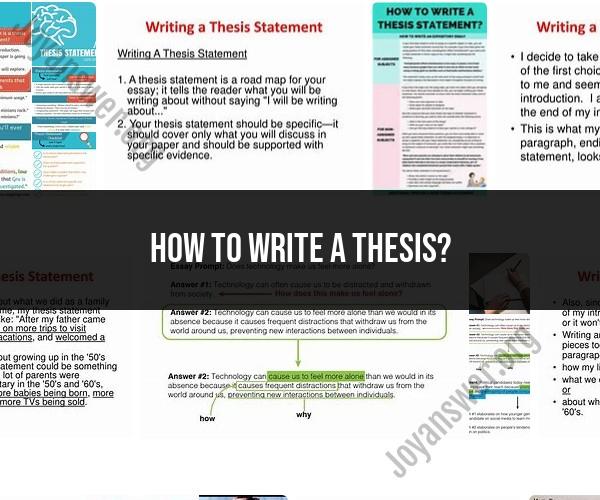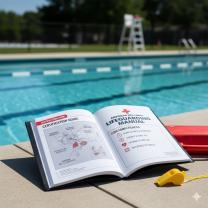How to write a thesis?
Writing a thesis is a significant academic endeavor that requires careful planning, research, and organization. Here's a step-by-step guide to help you write a successful thesis:
1. Choose a Research Topic:
- Select a research topic that interests you and is relevant to your field of study. Ensure it is specific, researchable, and has clear research objectives.
2. Conduct a Literature Review:
- Review existing literature on your topic to understand the current state of research, identify gaps or areas of interest, and develop a strong theoretical foundation for your thesis.
3. Develop a Research Question or Hypothesis:
- Formulate a clear research question or hypothesis that your thesis will address. This question should guide your research and provide a focus for your work.
4. Create a Research Proposal:
- Write a research proposal that outlines your research objectives, methodology, and expected outcomes. Seek feedback from advisors or peers to refine your proposal.
5. Gather Research Materials:
- Collect relevant data, sources, and materials for your research. This may include conducting experiments, surveys, interviews, or analyzing existing datasets.
6. Organize Your Research:
- Organize your research materials and sources systematically. Keep detailed notes, citations, and references to maintain a clear record of your sources.
7. Develop a Thesis Structure:
- Plan the structure of your thesis. Common sections include the introduction, literature review, methodology, results, discussion, and conclusion. Adapt the structure to your specific requirements.
8. Write the
- Start your thesis with an engaging introduction that presents your research topic, significance, research question, and provides an overview of your methodology and approach.
9. Conduct Research and Analysis:
- Conduct your research following the approved methodology. Collect and analyze data rigorously. Ensure that your research methods align with your research objectives.
10. Write the Literature Review:- Summarize and analyze the existing literature related to your topic. Identify gaps in knowledge and explain how your research contributes to the field.
11. Present Your Methodology:- Describe your research methodology, including data collection methods, sampling techniques, and data analysis procedures. Explain how you ensured the validity and reliability of your research.
12. Report Your Results:- Present your research findings in a clear and organized manner. Use tables, charts, and graphs to illustrate your data. Provide an objective analysis of the results.
13. Discuss Your Findings:- Interpret your results and discuss their implications. Address any limitations or challenges encountered during the research.
14. Write the Conclusion:- Summarize your main findings, restate your research question or hypothesis, and discuss the broader implications of your work.
15. Proofread and Edit:- Carefully review and edit your thesis for clarity, coherence, grammar, and style. Eliminate typos and formatting errors.
16. Cite Sources and References:- Ensure that you properly cite all sources and references according to the preferred citation style (e.g., APA, MLA) required by your institution.
17. Seek Feedback:- Share your thesis draft with advisors, professors, or peers to receive constructive feedback. Make revisions based on their suggestions.
18. Finalize and Submit:- Make the final revisions and prepare your thesis for submission. Follow your institution's guidelines for formatting and submission procedures.
19. Prepare for Defense (If Required):- If your program requires a thesis defense, prepare a presentation summarizing your research and findings. Be ready to answer questions from the committee.
20. Celebrate Your Achievement:- Once your thesis is accepted and approved, celebrate your academic achievement. You've successfully completed a significant research project!
Writing a thesis is a challenging but rewarding process. It requires dedication, time management, and strong research and writing skills. Throughout the process, seek guidance and support from your academic advisors and mentors to ensure your thesis meets the highest academic standards in your field.












